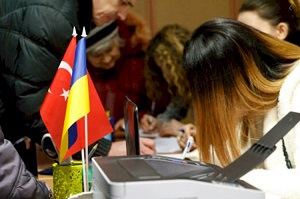Elon Musk: Visionary Leader or Strategic Maverick in Global Geopolitics?
Elon Musk's influence transcends technology, shaping geopolitics from the Ukraine war to European politics. Can he pioneer peace and redefine leadership in a fractured world?


WRITED BY YUSUF İNAN
Elon Musk: The Tech Titan Who Could Reshape Global Geopolitics
Elon Musk, a name synonymous with technological revolution, is now positioning himself as a key player in global geopolitics. From aiding Ukraine’s war efforts with Starlink to engaging with controversial political entities like Germany’s far-right AfD, Musk’s interventions are raising critical questions: Is he an agent of innovation or an unpredictable disruptor in international diplomacy?
Musk and Trump: A Strategic Convergence
Musk’s relationship with Donald Trump, now returning to political prominence, reflects a calculated alignment of interests. As Trump builds momentum for a potential political comeback, Musk’s outspoken support for deregulation, energy independence, and free-market policies resonates with Trump’s America First agenda. However, Musk’s strained ties with the Biden administration, particularly over environmental policies and corporate taxation, underscore a significant political rift. This dynamic amplifies Musk’s appeal as an outsider who challenges the status quo, both in the U.S. and globally.
Zelenskiy and the Ukrainian Front: Starlink’s Strategic Impact
Ukrainian President Volodymyr Zelenskiy’s reliance on Musk’s Starlink technology to maintain communications during Russia’s invasion exemplifies Musk’s ability to act swiftly in crises. Starlink’s role in restoring Ukraine’s connectivity has been hailed as a game-changer, enabling not only military coordination but also civilian resilience in war-torn regions. While Zelenskiy has expressed gratitude, questions linger: Is Musk’s involvement purely philanthropic, or does it signal a broader intent to influence geopolitical outcomes?
The European Dimension: Musk’s Foray into German Politics
Musk’s endorsement of Germany’s far-right Alternative für Deutschland (AfD) has sent shockwaves through European political circles. As the AfD gains ground in public opinion polls, Musk’s support is viewed as a provocative challenge to Germany’s centrist coalition led by Olaf Scholz. European leaders like Emmanuel Macron and Rishi Sunak have remained cautious, but the potential ripple effects of Musk’s involvement in German politics could reshape the continent’s approach to migration, energy policy, and EU integration.
Musk and Putin: A Calculated Distance
While Musk’s technology has empowered Ukraine, his restrained stance on directly criticizing Russian President Vladimir Putin highlights a nuanced strategy. This careful positioning allows Musk to maintain access to Russian markets for Tesla and SpaceX, even as his actions indirectly counter Russia’s aggression. This duality positions Musk as a pragmatic actor, capable of leveraging influence without overtly antagonizing global powers.
Can Technology Foster Global Peace?
Musk’s ventures underline the transformative potential of technology in diplomacy and conflict resolution.
-
Energy as a Catalyst for Stability:
Musk’s advancements in renewable energy, including Tesla’s battery technologies and SolarCity projects, could alleviate resource-based conflicts. By promoting energy independence, Musk has the potential to reduce reliance on fossil fuels, a critical factor in Middle Eastern and Eastern European tensions. -
Communication Networks as Peace Tools:
Starlink’s success in Ukraine sets a precedent for using satellite technology to bridge communication gaps in conflict zones. From Africa to Southeast Asia, similar deployments could foster transparency, aid delivery, and peacebuilding. -
Artificial Intelligence in Negotiation:
Musk’s investments in AI offer possibilities for automating and enhancing diplomatic efforts. AI-driven simulations could identify mutually beneficial solutions in protracted conflicts, acting as impartial advisors in negotiation rooms.
Implications for Global Leaders and Media
Musk’s growing influence raises profound questions for state leaders, bureaucracies, and media houses:
-
Strategic Partnerships or Threats?
Leaders like Biden, Sunak, Scholz, and Zelenskiy must decide whether Musk is a strategic ally or a wildcard capable of destabilizing established norms. His outreach to Trump and the AfD showcases his readiness to challenge traditional governance structures. -
Media’s Role in Shaping the Narrative:
From CNN to BBC and Ukraine’s Interfax, Musk’s interventions are a media goldmine. His ability to dominate headlines amplifies his power, necessitating nuanced reporting that scrutinizes his motives and impacts. -
Academic and Policy Relevance:
Think tanks, universities, and political scientists must grapple with Musk’s implications for state sovereignty and non-state actors in international relations. His actions demand new frameworks for understanding the interplay of technology and geopolitics.
The Road Ahead: Musk’s Vision of Peace
As the Middle East and Eastern Europe grapple with protracted conflicts, Musk’s role as a potential peacemaker hinges on his ability to balance innovation with diplomacy. His ability to navigate complex geopolitical landscapes suggests a unique opportunity: leveraging technology not just for profit, but for lasting peace.
Will Musk rise to the occasion and redefine the boundaries of tech-driven diplomacy? Or will his interventions remain a controversial footnote in history? As world leaders, policymakers, and media outlets continue to monitor his moves, one thing is clear: Elon Musk is not merely observing the game—he is reshaping it.

YUSUF İNAN / PEACE AT HOME, PEACE IN THE WORLD (*)
Twitter : @Yusufinan2023
Instagram : yusufinan2023
Instagram : fondinan2016
Email : gundem@sehitlerolmez.com
Website : www.sehitlerolmez.com
(*) As Mustafa Kemal Atatürk, the founder of modern Turkey, once said, 'Peace at Home, Peace in the World.' This timeless principle serves as a guiding light for nations striving for harmony, coexistence, and global stability.






































